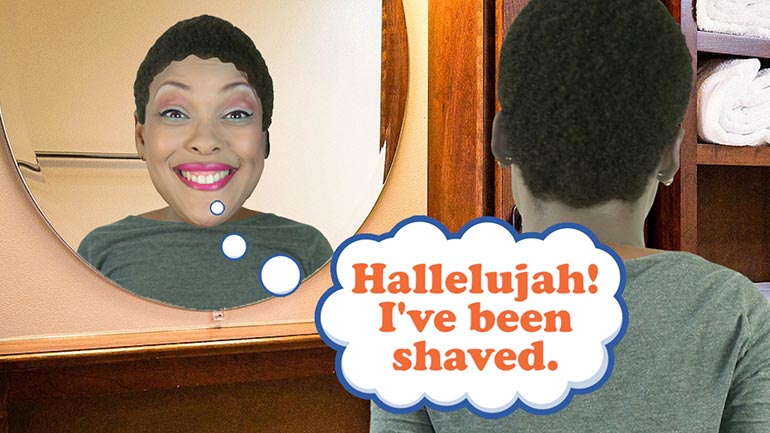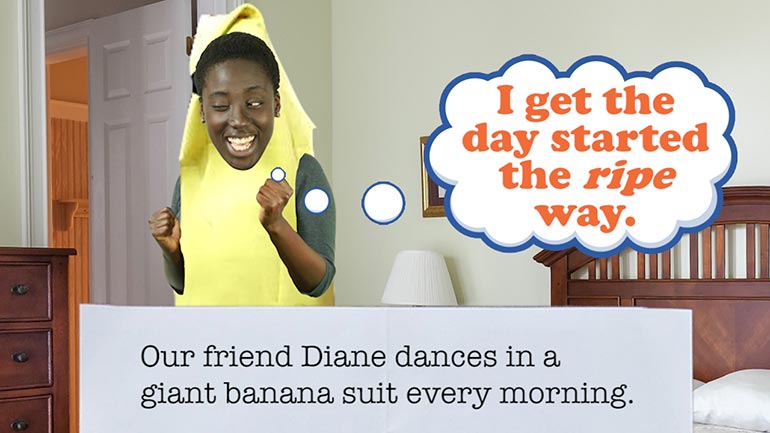ShmoopTube
Where Monty Python meets your 10th grade teacher.
Search Thousands of Shmoop Videos
ELA 4: How to Give Good Feedback 4 Views
Share It!
Description:
Protip: Don't tell someone how terrible their work is and how you think it reflects upon them as a person. Try giving them a few positive comments as well. And maybe just leave all of personal attacks out in the first place. Check out the video for a more in-depth walk through.
Transcript
- 00:03
[Dino and Coop singing]
- 00:13
Good feedback can be a great way to improve people's writing, but not all feedback is [Coop pointing at a blackboard]
- 00:17
created equal.
- 00:18
For instance, if someone gives you an essay and you glance at it, then hand it back and
- 00:22
say, "Looks fine"? [Girl looks unconvincing]
Full Transcript
- 00:24
That's not exactly the most helpful feedback in the world. [Not helpful stamp]
- 00:27
Luckily we've got some pointers to help you improve your feedback.
- 00:30
Pointer number one?
- 00:31
Remember to think about the whole.
- 00:32
If someone's asking you for feedback about an assignment, that assignment probably has [Teacher giving a class an assignment]
- 00:36
a purpose.
- 00:37
So, think about how well the writer's work lines up with that purpose. [The task is 'Do X' so the girl just writes X on a piece of paper]
- 00:41
For example, if the assignment was to write a funny story,
- 00:44
and they gave you a picture that makes you wanna cry, then something probably went wrong. [Girl looks at a sad picture and cries]
- 00:48
Pointer two!
- 00:49
As you're reading, try to stay focused on the thoughts that come to you naturally, and [Dino pointing at a blackboard]
- 00:53
be sure to write them down.
- 00:54
For instance, maybe you stumbled at a certain part. [Guy trips on a comma]
- 00:56
Note where, and try to figure out what caused the confusion.
- 00:59
This kind of feedback can be a great opportunity for the writer to get a good look at what
- 01:03
goes on inside the reader's head…
- 01:05
…without resorting to brain surgery. [Guy about to open a mans head]
- 01:07
Pointer three: it's a good idea to try to add something.
- 01:10
As you're reading, it might occur to you that the text could benefit from something more: [Girl reading a paper]
- 01:13
maybe another idea…
- 01:14
…a different example
- 01:16
…a nice turn of phrase
- 01:17
…or even a quotation from an expert. [Thought bubbles appearing with ideas]
- 01:19
Whatever it is, be sure to pass it along to the writer, because writing's a lot easier [Ideas landing on the writers desk]
- 01:23
when good ideas just fall into your lap.
- 01:25
And last but not least, pointer four!
- 01:27
Ask questions.
- 01:28
Sure, you're the one who's supposed to be giving the feedback,
- 01:30
sometimes asking a question as simple as: "What were you thinking here?" can really [Girl asking the boy questions]
- 01:33
get the gears turning… [Gears in the boys head turning]
- 01:35
…and the writer can come up with a solution to a problem they didn't even know existed. [A lightbulb appears on his head]
- 01:38
And that's it!
- 01:39
So…how's about it?
- 01:41
Have any feedback for us?
- 01:42
…Don't hold back.
- 01:43
We're…brave….ish… [Dino looks annoyed that he only got 4 stars feedback]
Up Next
Sticks and stones, right? Well...only sometimes. It's a good idea to make sure your words aren't going to hurt others. Let's look at some ways to d...
Related Videos
Learn to debate like a champ. It's way better than debating like a chimp. That just takes mudslinging to a whole new level.
Today we'll learn about biographies and autobiographies. And no, the second one has nothing to do with the lives of cars.
In this lesson we'll subject you to some verbs and predicates. Each one is a necessary part of a complete breakfas—er...sentence.
Choosing words carefully is important. You may end up vexing the assemblage of citizens you're conversing with...or you might even just plain bore...




